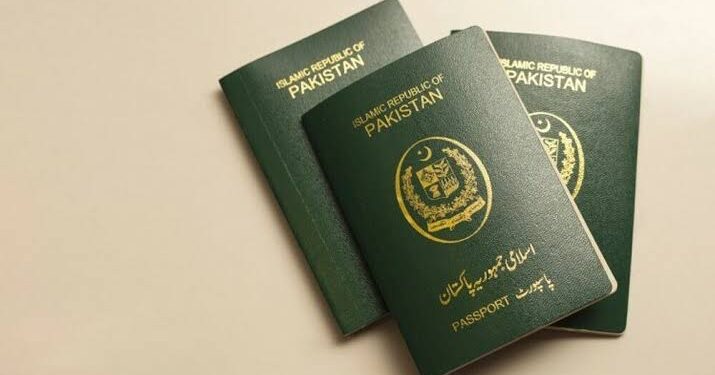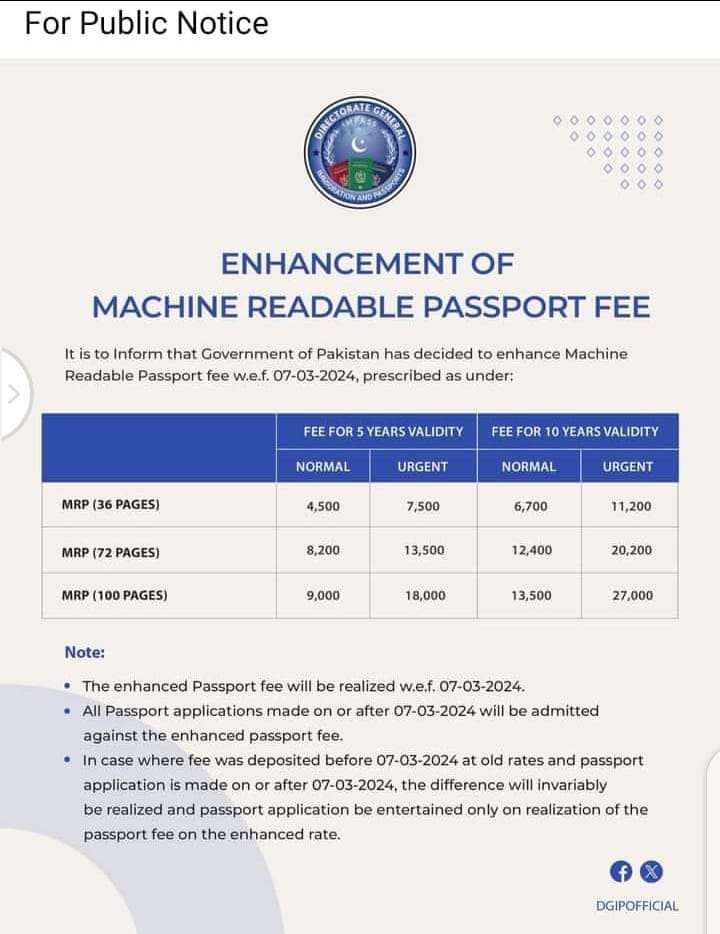Passport Fee Increased
The recent decision by the Government of Pakistan to increase the fees for Machine Readable Passports (MRP), debates among citizens. From 7th March 2024, the new fee structure has seen like a hike, particularly for 5-year and 10-year passports. The fee for a 5-year passport has increased from 4,500 to 7,500 rupees for normal processing and from 9,000 to 13,500 rupees for urgent processing. Similarly, the fee for a 10-year passport has risen from 6,700 to 11,200 rupees for normal processing and from 13,500 to 20,200 rupees for urgent processing. These increases have left many questioning the rationale behind the decision and its impact on the public.

It is a necessary step towards modernizing passport services in Pakistan. They argue that the previous fee structure was inadequate to cover the costs of maintaining and upgrading passport services, leading to inefficiencies and delays. By increasing the fees, the government can invest in improving infrastructure, technology, and staff training, ultimately leading to a more efficient and reliable passport services.
Additionally, proponents argue that the fee hike is in line with international standards. They point out that many countries around the world charge much higher fees for passports, and Pakistan’s fees were among the lowest in comparison. By increasing the fees, Pakistan can bring its passport fees more in line with global standards and ensure that its passport services are sustainable in the long run.
However, opponents of the fee hike argue that it is a burden on the citizens, particularly the middle and lower-income groups. They argue that the increase in fees comes at a time when the cost of living is already high, and many people are struggling to make ends meet. For these people, the increased passport fees represent an additional financial burden that they can ill afford.
Opponents also argue that the fee hike will disproportionately affect certain groups, such as students studying abroad or migrant workers. These groups often rely on passports for their livelihoods and may find it difficult to pay the increased fees, potentially limiting their opportunities for travel and employment.

Furthermore, opponents question the transparency of the decision-making process. They argue that the government should have consulted with the public and provided a clear justification for the increase in fees. Without this transparency, there is a lack of trust in the government’s motives and intentions.
In conclusion, the increase in passport fees in Pakistan has sparked a debate about the balance between modernization and financial burden on citizens. While proponents argue that the fee hike is necessary for improving passport services and bringing them in line with international standards, opponents argue that it is a burden on the public. Moving forward, it is crucial for the government to address these concerns and ensure that passport services are both efficient and accessible to all citizens.
